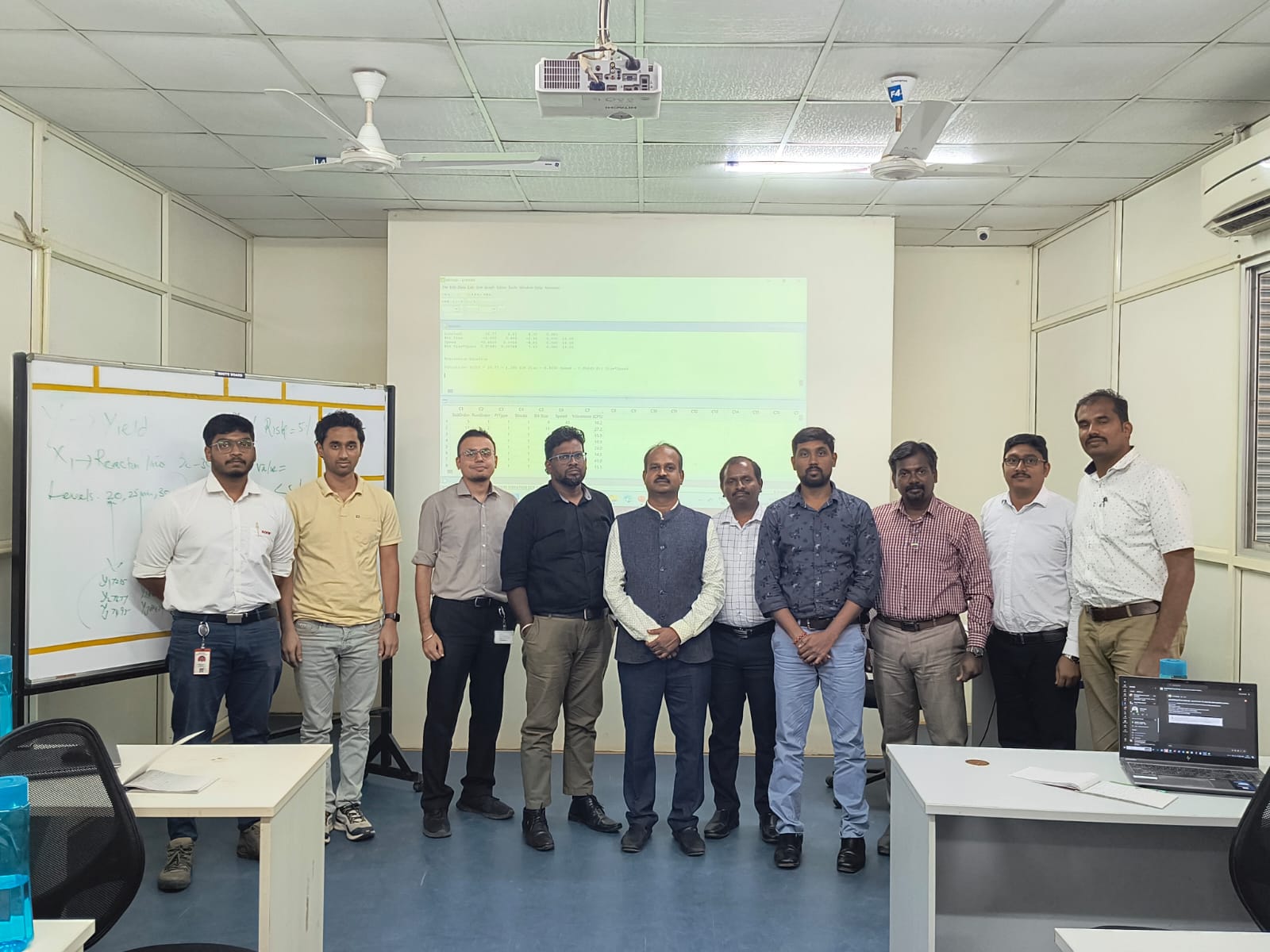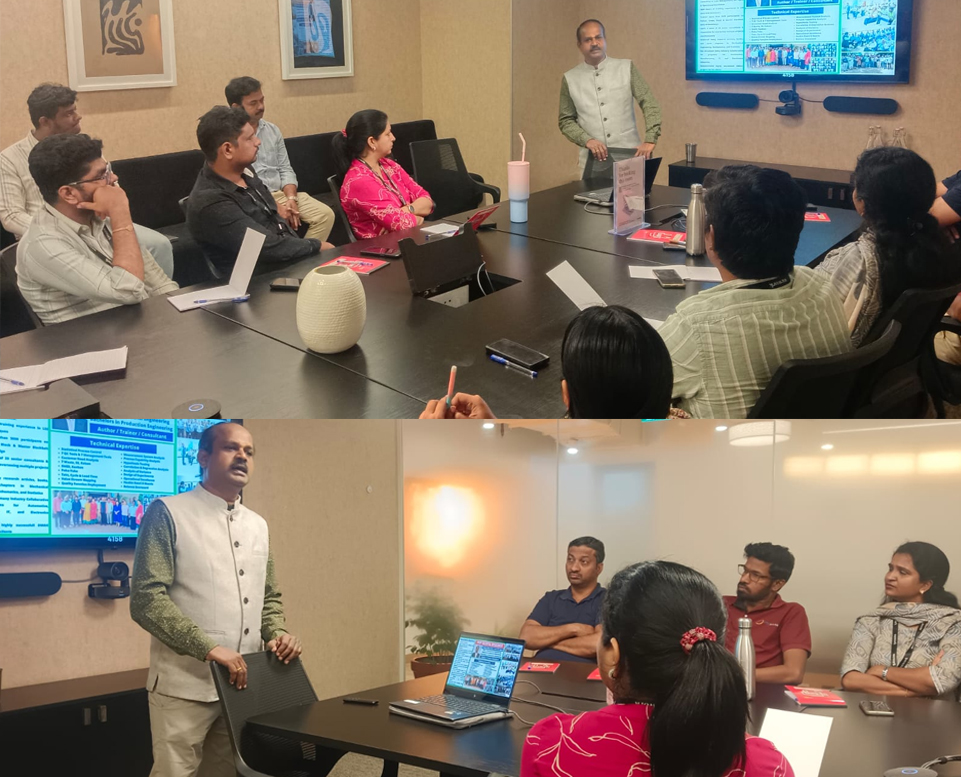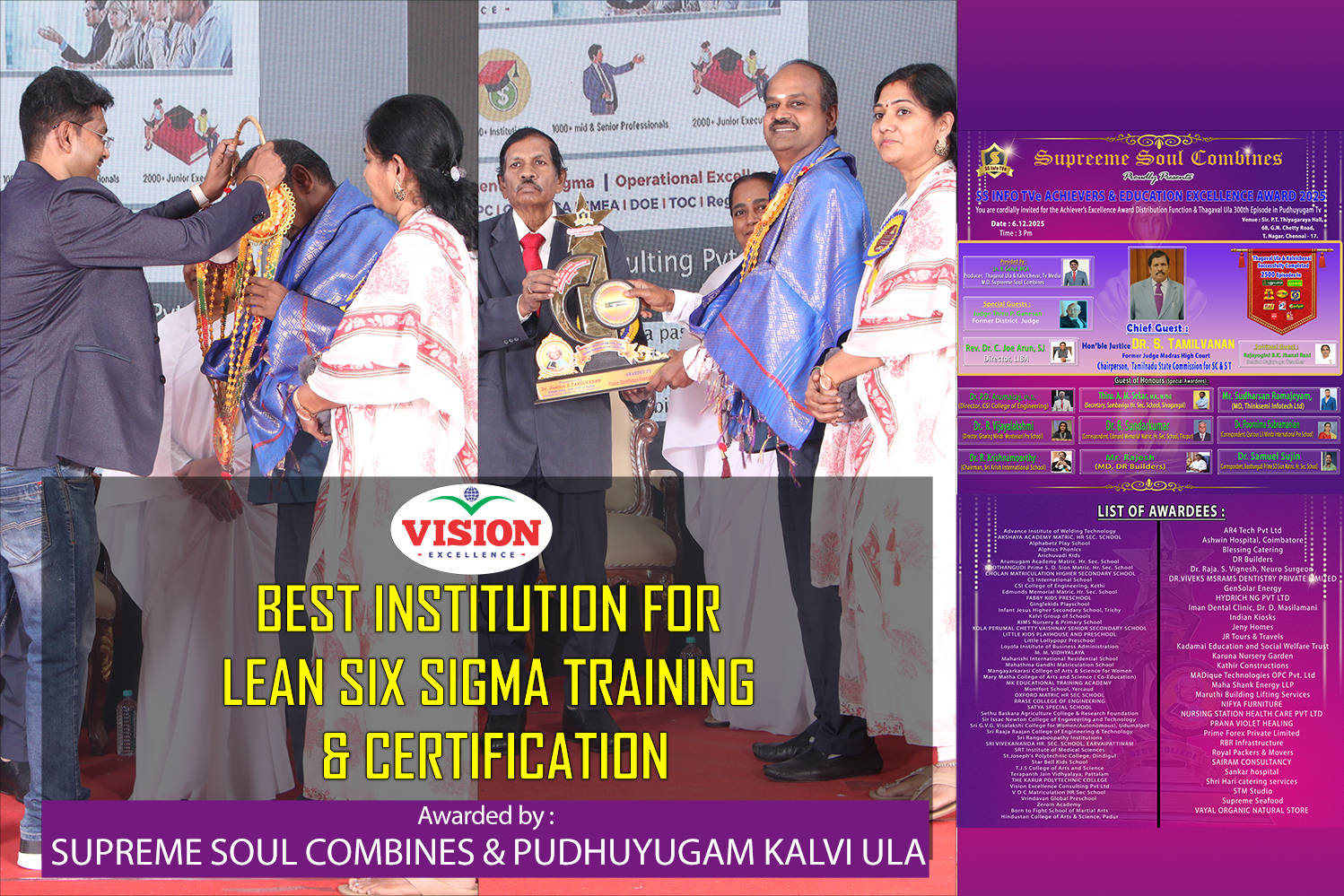In today’s competitive business environment, innovation and continuous improvement are key to staying ahead. One powerful tool that has been gaining momentum in the automotive industry is Design of Experiments (DOE). Recently, Vision Excellence Consulting hosted an exclusive session on this topic for senior-level professionals from various automotive industries. The training was led by the esteemed Dr. Gopal Sivakumar, a renowned expert in Lean Six Sigma and Operations Excellence, whose extensive experience in quality management made this session invaluable for all participants.
Table of Contents
ToggleUnderstanding the Importance of DOE in the Automotive Industry
Design of Experiments (DOE) is a systematic method to determine the relationship between factors affecting a process and the output of that process. For professionals in the automotive industry, this is crucial for optimizing product design, improving manufacturing processes, and reducing costs while maintaining high-quality standards. DOE helps engineers and decision-makers analyze the factors that contribute to variations in performance and identify the most efficient solutions.
In a field where precision, reliability, and innovation are non-negotiable, applying DOE can lead to significant improvements in product development, manufacturing processes, and testing protocols. This methodology is especially critical for automotive companies striving to meet ever-increasing customer demands and regulatory standards.
Highlights of the Training by Dr. Gopal Sivakumar
During the session, Dr. Gopal Sivakumar shared his expertise in Lean Six Sigma methodologies and practical insights into how DOE can be applied specifically within the automotive sector. The training covered several key topics:
- Introduction to DOE Concepts: Participants were introduced to the fundamental principles of DOE, including factorial designs, response surface methodology, and optimization techniques.
- Real-World Applications in the Automotive Sector: The session emphasized how DOE can be applied to optimize automotive components, such as engine performance, fuel efficiency, and emission control systems. Participants learned how these techniques could be used to improve reliability and durability in manufacturing processes.
- Hands-On Case Studies: Dr. Sivakumar incorporated real-world case studies from his vast experience in working with automotive giants, allowing the professionals to gain practical insights into DOE’s impact on reducing defects, minimizing waste, and enhancing overall operational efficiency.
- Interactive Learning: The session was highly interactive, encouraging participants to bring in their current challenges from their respective companies. This practical approach enabled a personalized learning experience where professionals could see how DOE principles could be directly applied to their problems.
- Advanced Analytical Tools: A key takeaway from the session was the introduction to advanced statistical tools for data analysis, enabling participants to interpret experimental data and drive informed decisions for process improvements.
Conclusion
The Design of Experiments session for senior automotive professionals was a resounding success, equipping participants with the tools they need to tackle complex challenges in their industry. As the automotive sector continues to evolve, methodologies like DOE are becoming increasingly vital for ensuring innovation, quality, and operational excellence.
Vision Excellence Consulting and Dr. Gopal Sivakumar remain committed to providing cutting-edge training and consultancy services to professionals seeking to drive change within their organizations. With sessions like this, industry leaders are empowered to stay at the forefront of technological and operational advancements, ensuring their businesses thrive in a dynamic market.






